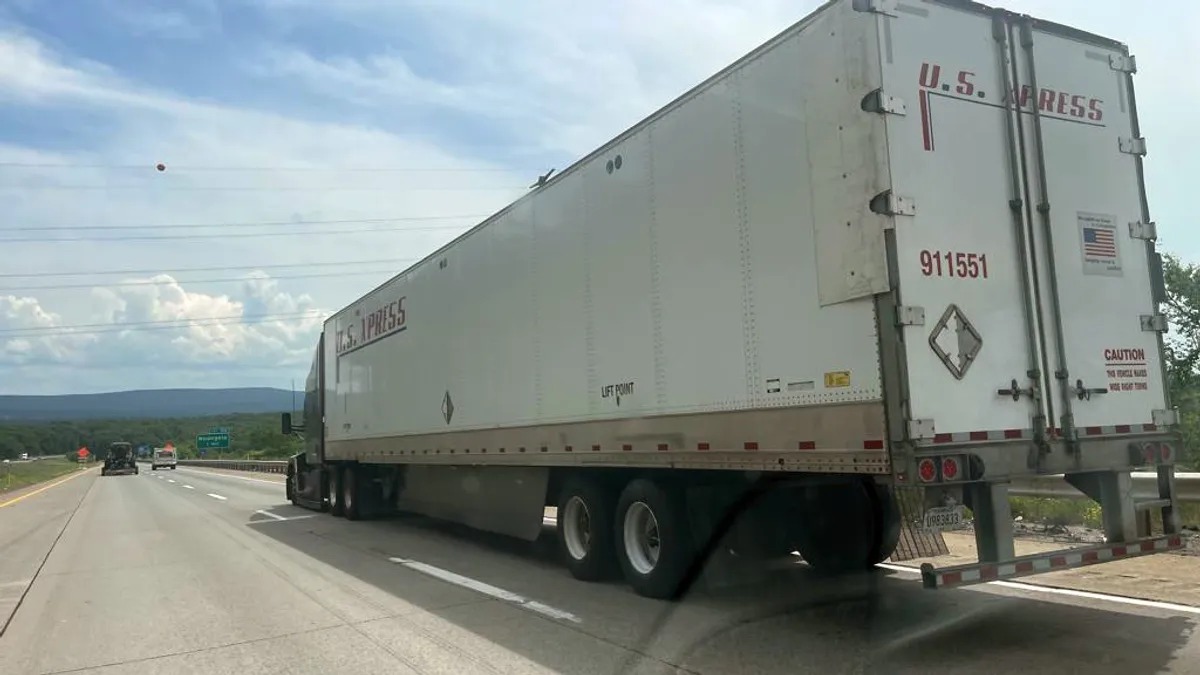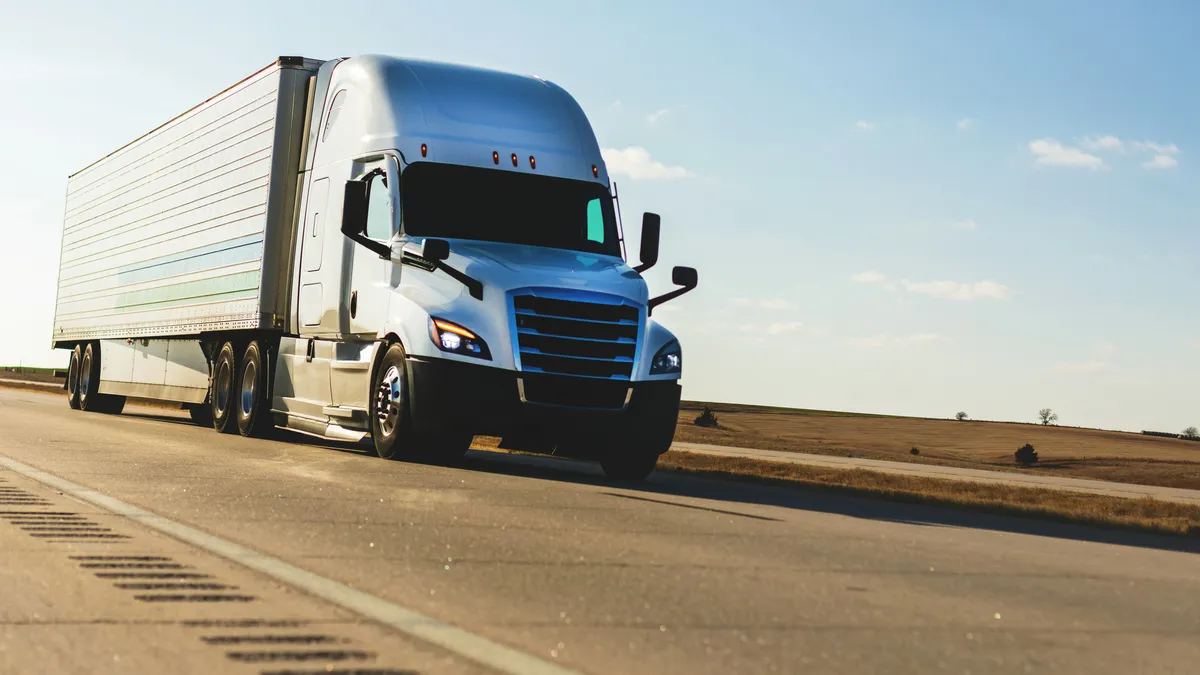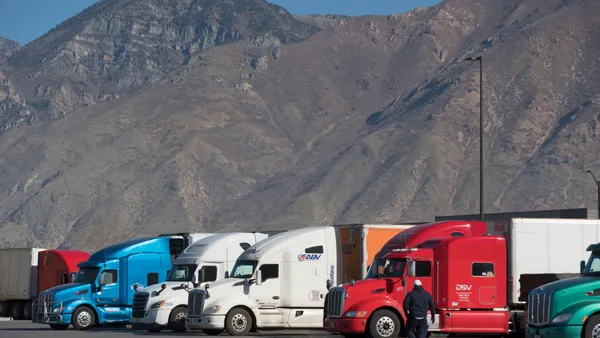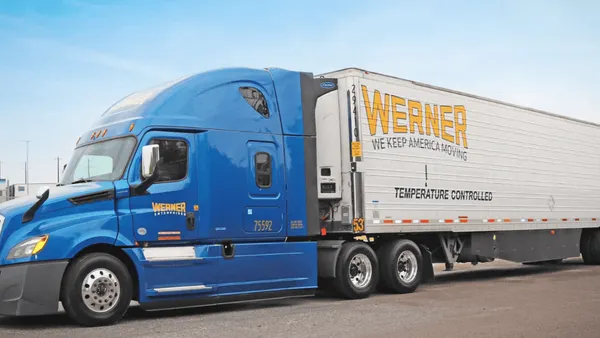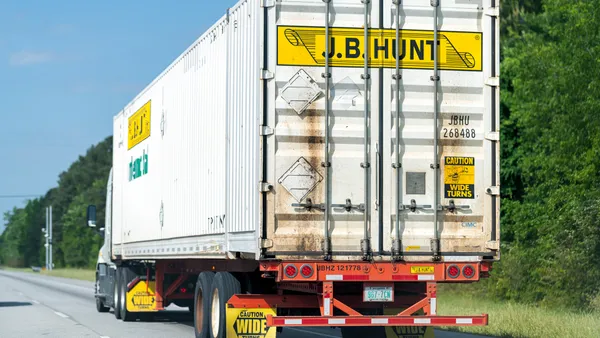Knight-Swift Transportation Holdings has made progress on integrating U.S. Xpress Enterprises into its business as it continues to revamp the distressed carrier it acquired this summer.
The carrier reported on a Q3 earnings call last week measures that it’s implemented as it seeks to make the business profitable in 2024. On the call, Knight-Swift President and CEO Dave Jackson highlighted steps the company has taken thus far.
“U.S. Xpress is rolling out a decentralized terminal-based operating model similar to Knight-Swift,” Jackson said, adding that U.S. Xpress “is now dealing directly with shippers.”
Knight-Swift’s progress at U.S. Xpress so far includes reducing spot exposure to about 15% — from about 45% previously — and fully eliminating broker freight, according to a company presentation.
The company also converted nine of 10 U.S. Xpress locations from parking areas to operating terminals, Jackson said on the earnings call.
By building out U.S. Xpress’ terminal network, executives expect to improve the safety performance of the newly acquired fleet as well as U.S. Xpress worker turnover and recruiting, Swift Transportation President and Knight-Swift CFO Adam Miller said on the earnings call.
A $14.6 million income tax benefit due to U.S. Xpress net operating losses and a tax credit carry-forward benefit came after the July 1 closing, Jackson said.
The company’s truckload segment, which makes up most of its revenue, had an adjusted operating ratio of 94.9% in Q3, including U.S. Xpress. The acquisition negatively affected that metric by 3.4 percentage points, the company reported.
At the same time, U.S. Xpress has contributed to earnings for Knight-Swift’s overall logistics and dedicated business. “The wildcard is that over-the-road component, and it's made dramatic progress,” Jackson said.
With progress already paying off, the Phoenix, Arizona-headquartered firm further said it’s “ahead of schedule to achieve operating profit, before interest expense,” for U.S. Xpress in the first half of 2024. It expects to realize accretive earnings per share with the acquisition next year and is on track to achieve $1 EPS accretion with that brand in 2026.
"The idea of getting to breakeven without any help from the market, that is definitely within reach," Jackson said, adding that's not the goal. "This has been dramatic and faster than we would have expected."



